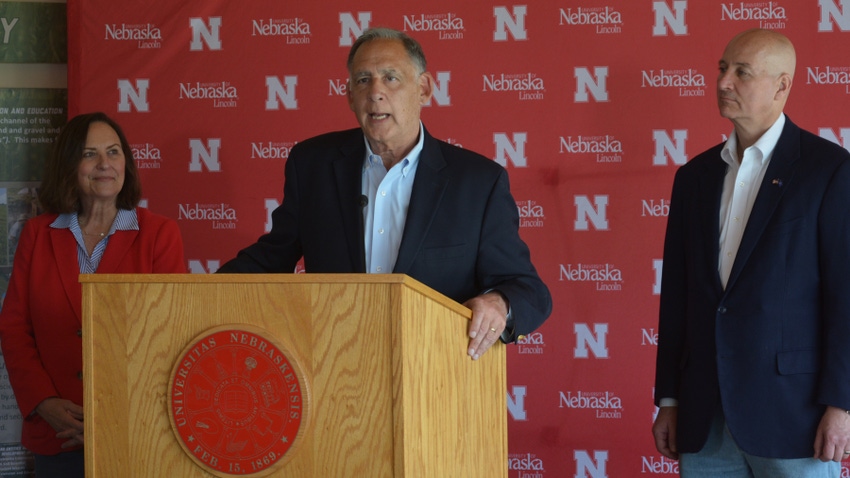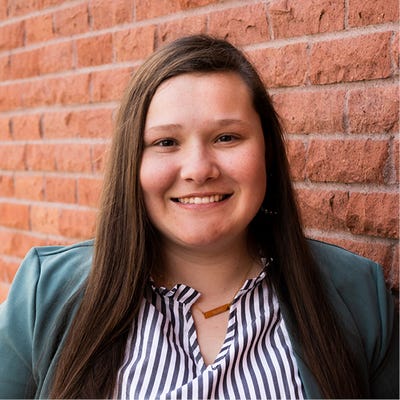
“Our farmers and ranchers were the original conservationists,” said U.S. Sen. Pete Ricketts, R-Neb. “What we saw today here at UNL Extension is what the University of Nebraska is doing to help our farmers and ranchers continue to be the best conservationists,” the former Nebraska governor added.
U.S. Sen. Deb Fischer, R-Neb., U.S. Sen. John Boozman, R-Ark., ranking member of the Senate Agriculture, Nutrition and Forestry Committee, and Ricketts spent the day touring the Eastern Nebraska Research, Extension and Education Center (ENREEC) near Mead on May 12.
These three U.S. senators heard from roundtables of producers about their farming and ranching practices. By listening to the successes and struggles of these farmers, they mentioned what they would like to see in the next farm bill.
Two main points came up. Fischer reported that producers expressed their concerns about maintaining strong crop insurance to mitigate risk, along with other avenues to ensure they have a plan when disaster strikes. The second point that arose was getting disaster aid out earlier. Fischer explained that she has talked to some producers who didn’t get aid until two years after disastrous flooding, and by that time, the farm had already “gone under.”
Boozman has been traveling the U.S. with the goal to make a stronger farm bill, listening to what the producers need. “Now I believe strongly with all my heart that the solutions to our problems need to come from the ground up, not in Washington,” Boozman said. He continues to say how the university system is vital to solving these problems.
Next farm bill
The biggest goal of the next farm bill is giving producers the ability to have risk management. Boozman said that one way they can do this is making technology easier to acquire to be more efficient.
Compared with the 2018 farm bill, interest rates and unstable markets put more pressure on this farm bill to assist these producers’ unique needs. “We understand that agriculture is not a one size fits all. Even our fields are different within the field,” Boozman said.
On the discussion of addressing the response to natural disasters, Fischer sees a need for this to be in the next farm bill, so these payments could be distributed earlier. “We saw flooding, wildfires and drought conditions that are changing the total number of acres across the state,” Fischer said. “There are a lot of risks that ag producers take that they have no control over, so making those payments to them earlier would be extremely helpful.”
When asked about getting the farm bill done this year, Boozman says, “Yes.” He has been conducting listening sessions with producers and gauging grower concerns. Boozman’s goal is to have it done before September, and at the latest, by the end of the year. If it goes into next year, there will too much going on with the presidential race, he added.
Concerns for future
In a lecture hosted by UNL this past week, it was mentioned that China is outpacing the U.S. by a 5-to-1 ratio when it comes to agricultural research. “We can be proud of what we have done,” Boozman said. “They might be spending more research dollars catching up. But that is what they are doing — catching up.”
The senators saw the research and innovation that UNL has been doing, and they are encouraged by what they have seen.
It is a reality for producers that there is an increase in production costs and that fact affects profitability. Boozman noted that he is concerned with the average age of producers being in the baby boomer generation. “We have to get younger people back on the farm,” Boozman said. With people getting married and having children later in life, this is also something else the ag industry will have to deal with.
Quotes from Boozman
“Food security is national security.”
“It allows our farmers to have certainty knowing what the rules are going to be for the next five years and what they can count on for risk management tools as they go forward.”
“We care a lot about timing, which is so important when we talk about taking care of the air, taking care of the water and taking care of the land.”
Read more about:
Farm BillAbout the Author(s)
You May Also Like






